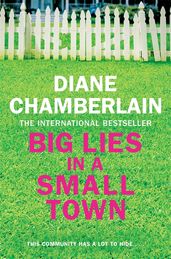Synopsis
When the pretending ends, the lying begins . . .
It's the summer of 1990 and fourteen-year-old Molly Arnette lives with her extended family on one hundred acres in the Blue Ridge Mountains. The summer seems idyllic at first. The mountains are Molly's playground and she's well loved by her father, a therapist famous for books he's written about a method called 'Pretend Therapy'; her adoptive mother, who has raised Molly as her own; and Amalia, her birth mother who also lives on the family land.
The adults in Molly's life have created a safe and secure world for her to grow up in. But Molly's security begins to crumble as she becomes aware of a plan taking shape in her extended family – a plan she can't stop and that threatens to turn her idyllic summer into a nightmare.
Pretending to Dance by Diane Chamberlain, the bestselling author of The Silent Sister, is a fascinating and deftly-woven novel, that reveals the devastating power of secrets.
Details
Reviews
A gripping story of a girl's relationship with her father
Twisty and smart
Prepare to have your heartstrings tugged by this cleverly crafted family drama
Tightly written with a great plot, this book will keep you hooked









